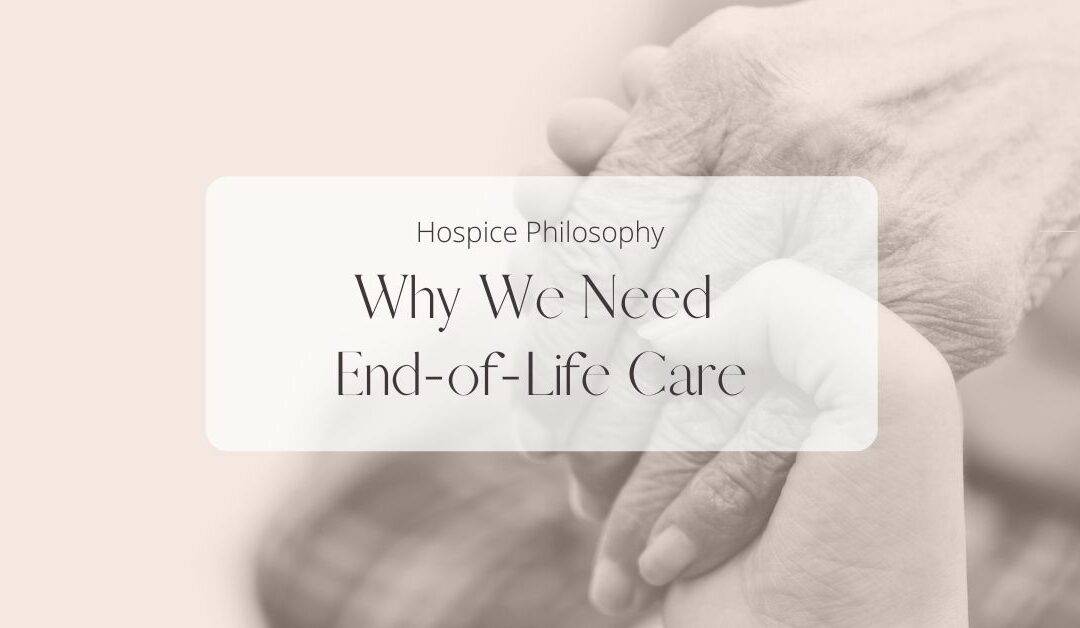When a loved one faces a diagnosis of terminal illness, their loved ones often scramble to find the best hospice care. The hospice philosophy is essential because it focuses on providing comfort and peace to those who are facing end-of-life illnesses. Let’s look at hospice philosophy and why it matters so much to families with loved ones facing death.
Hospice Philosophy
The hospice philosophy centers around the belief that everyone has the right to die peacefully with dignity. Hospice workers aim to provide physical, emotional, and spiritual support to terminally ill patients and their families. They also work to educate patients and families about what to expect during the dying process.
The hospice philosophy is crucial because it helps families prepare for the death of their loved one. Hospice workers train to deal with all aspects of death, covering the needs of both patients and their families.
What Exactly Do Hospice Workers Do?
Hospice workers provide many different services, but their primary goal is to provide comfort and peace to those who are dying. They may give medications to help ease pain or other symptoms, but they also focus on providing emotional and spiritual support. Hospice workers often spend time talking with patients and families, answering questions, and helping them to prepare for death.
The hospice philosophy helps us deal with death, providing a level of peace to those dying and assisting families in preparing for the death of their loved one. (1)
Involvement in the Dying Process
Many of us see terminal illness as something for the medical establishment to handle. However, we miss out on being a part of the end-of-life journey of our loved one when we don’t share in the emotional process of caring for and spending time with the ill. There is a process of slowly letting go when we don’t leave the dying for someone else to handle.
Many families whose loved ones pass away suddenly face a difficult grief journey. Many feel overwhelming guilt or regret for not saying what they needed to say. A lack of closure in a sudden passing can cause grief to linger with the “what ifs” and “whys.”
You may feel unsure how to care for a dying individual. Do they need you to fluff their pillows or bring them water? What if they are not speaking? Confusion about how to help can cause indecision about how a visit should go.
Spending time at the bedside of a terminally ill loved one is an essential part of grieving. Hospice does much of the caretaking that we don’t necessarily know how to take on. In this way, hospice gives us the ability to just be there for someone in their last stages of life.
Hospice workers help the family know that their loved one is cared for as they spend time at their bedside. Getting a chance to say goodbye to a dear one without worrying about their physical needs is a gift.
In times past, communities were more close-knit, and often neighbors would come to visit someone dying at home. In our times, it’s more likely that those passing away are living in a nursing home or having a stay at the hospital. With hospice care at home or in a care facility, visitors are often more appreciated and welcomed because the family and friends are not worried about doing all of the caretaking on their own.
Hospice philosophy involves comforting the dying so that the living can participate in more time with the ill individual as their last days play out.
Facing Difficult Decisions with Professional Advice
The family of a dying individual often has to make difficult decisions about care. Hospice professionals provide families with peace of mind at a time when they may feel overwhelmed. This end-of-life care focuses on the comfort and dignity of the terminally ill. With medication, companionship, attention to needs, and a desire to serve, hospice members come alongside families to see them through some of the most challenging seasons in their lives.
Participating in the decision-making process for a loved one’s death can bring difficult decisions such as:
- Whether or not and when to turn off life support
- Organ Donation and Tissue Donation
- Finding their last will and testament
- Planning for estate matters after a death
- Considering funeral or memorial arrangements
- Emotional outbursts or family strife if there are unhealed traumas from the past
- Other family issues and planning disputes
Hospice care workers act as a peaceful presence to help ground the family while they work through challenging times together.
We Can Help
At Renaissance Funeral Home and Crematory, we are here for you. Whether your loved one wants to participate in their funeral plans or you just need an ear as you try to understand what comes next, we’re ready to listen and give you the help you need to get through this difficult time. Contact us for assistance moving forward into the next steps.


